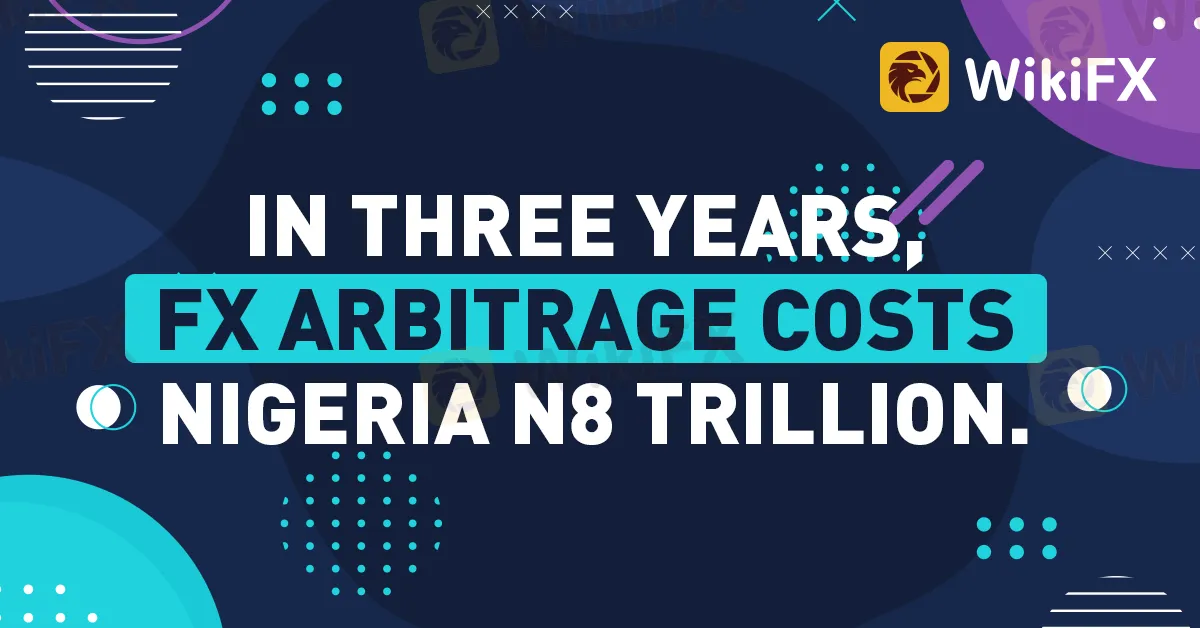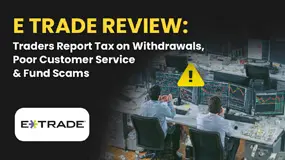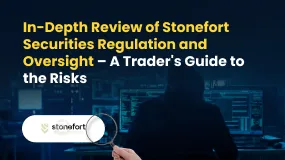简体中文
繁體中文
English
Pусский
日本語
ภาษาไทย
Tiếng Việt
Bahasa Indonesia
Español
हिन्दी
Filippiiniläinen
Français
Deutsch
Português
Türkçe
한국어
العربية
IN THREE YEARS, FX ARBITRAGE COSTS NIGERIA N8 TRILLION.
Abstract:The Central Bank of Nigeria (CBN) continued to put off the convergence of the currency rates three years after promising to do so. Nigeria's FX stability has been unstable since the 1980s due to a variety of rates, rent-seeking, and other market manipulations.

· Former CBN Director: Regulatory control, not intervention, is to blame
· Rate harmonization is still an illusion three years later
The Central Bank of Nigeria (CBN) continued to put off the convergence of the currency rates three years after promising to do so.
Nigeria's FX stability has been unstable since the 1980s due to a variety of rates, rent-seeking, and other market manipulations.
When the black-market rate skyrocketed to N880/$ last year, the market arbitrage—the differential between the official and parallel markets—rose from N100 per dollar in 2020, or approximately 30%, to over N400 per dollar (over 100%). The International Monetary Fund (IMF) are cautious about exchange rate differences over 5% and caution that doing so could lead to unhealthy manipulation that could undermine other efforts at market stabilization.
The CBN intervened in the FX market for around $42 billion between 2020 and 2022 to stabilize the naira. The amount was sold to final customers at official rates below the effective exchange rate of the naira, including students and tourists.
The CBN's Financial Stability Report states that the central bank sold $9.2 billion worth of securities on the market during the first half of 2017. Although complete data for the second half are not yet available, it is expected that the annualized value has exceeded it, especially given the volume of social and economic activity that the second half is known for.
While the black-market rate typically closed at N650/$, the Investors and Exporters (I &E) window rate averaged a suppressed N447/$. The arbitrage now stands at N203/$, bringing the CBN's FX subsidy for the year to nearly N3.65 trillion.
Similarly, the country's foreign reserves were reduced by 17.5 trillion Nigerian Naira as a result of the 2021 FX intervention. The country wasted almost N2.62 trillion that end users would have paid if they had purchased in the more accessible parallel market, at an average arbitrage of N160 per dollar.
The COVID-19 situation, that had lots of significancy in the nation's foreign earnings, forced the CBN to change the official rate three times in 2020. It was around N307/$ at the year, but three months in, it was raised to N361/$ and increased by an additional N20 as the year came to a close, bringing the average official exchange rate to N350 per dollar.
The price on the parallel market fluctuated at N450/$, translating to an arbitrage of N100 per dollar. The CBN sold $17.5 billion worth of foreign currency in total in the COVID-19 year, hence the amount realized from the sale was N1.75 trillion less than the market value. Dr. Muda Yusuf, a proponent of free markets and private sector, said that the effects of FX subsidy that was shared yesterday that a realistic exchange rate regime would add N4 trillion to the Federation Account. He criticized the CBN FX selling program on the economy and public finances.
Nigeria is dealing with an unprecedented financial squeeze. Even in the face of fictitious revenue estimates, the budget for this year is loaded with an over 50% deficit. The PMS subsidy has burdened the government, according to Yusuf, the director of the Centre for Promotion of Private Enterprise (CPPE), and FX sale is the next burden. The PMS subsidy is anticipated to be N3.36 trillion in 2023, or 15.4% of the overall spending envelope.
The gasoline subsidy regime and the Fx subsidy regime are two significant subsidy regimes that place a significant burden on the Nigerian economy. If the right reforms are put in place, enormous quantities of money can be generated from these subsidy systems.
A strategy is already in place, which is a good development. The federation account would get at least N6 trillion in annual revenue as a result of this decision. Additionally, the subsidy regime's long history of robbing the country of its resources would come to an end.

Disclaimer:
The views in this article only represent the author's personal views, and do not constitute investment advice on this platform. This platform does not guarantee the accuracy, completeness and timeliness of the information in the article, and will not be liable for any loss caused by the use of or reliance on the information in the article.
Read more

E TRADE Review: Traders Report Tax on Withdrawals, Poor Customer Service & Fund Scams
Has your E Trade forex trading account been charged a withholding tax fee? Did your account get blocked because of multiple deposits? Did you have to constantly call the officials to unblock your account? Failed to open a premium savings account despite submitting multiple documents? Is fund transfer too much of a hassle at E Trade? Did you find the E Trade customer support service not helpful? In this E Trade review article, we have shared certain complaints. Take a look!

mBank Exposed: Top Reasons Why Customers are Giving Thumbs Down to This Bank
Do you find mBank services too slow or unresponsive? Do you find your account getting blocked? Failing to access your account online due to several systemic glitches? Can’t perform the transactions on the mBank app? Do you also witness inappropriate stop-level trade execution by the financial services provider? You are not alone! Frustrated by these unfortunate circumstances, many of its clients have shared negative mBank reviews online. In this article, we have shared some of the reviews. Read on!

In-Depth Uniglobe Markets Commission Fees and Spreads Analysis – What Traders Should Really Know
For experienced traders, the cost of execution is a critical factor in broker selection. Low spreads, fair commissions, and transparent pricing can be the difference between a profitable and a losing strategy over the long term. This has led many to scrutinize the offerings of brokers like Uniglobe Markets, which presents a tiered account structure promising competitive conditions. However, a professional evaluation demands more than a surface-level look at marketing claims. It requires a deep, data-driven analysis of the real trading costs, set against the backdrop of the broker's operational integrity and safety. This comprehensive Uniglobe Markets commission fees and spreads analysis will deconstruct the broker's pricing model, examining its account types, typical spreads, commission policies, and potential ancillary costs. Using data primarily sourced from the global broker inquiry platform WikiFX, we will provide a clear-eyed view of the Uniglobe Markets spreads commissions prici

In-Depth Review of Stonefort Securities Regulation and Oversight – A Trader's Guide to the Risks
For experienced traders, the process of selecting a new broker transcends a simple comparison of spreads and leverage. It is a meticulous due diligence exercise where the integrity of the broker's regulatory framework is paramount. Stonefort Securities, a relatively new entrant in the crowded brokerage space, presents a complex and often contradictory profile. On one hand, it boasts a modern MT5 platform and a stream of positive user testimonials. On the other hand, it is shadowed by severe regulatory warnings that question the very foundation of its operations. This in-depth review focuses on the core issue for any long-term trader: Stonefort Securities regulation and oversight. We will dissect the broker's corporate structure, scrutinize its licensing claims, and analyze what the data implies for trader protection and fund security. For traders evaluating whether Stonefort Securities is a trustworthy partner, understanding these details is not just important—it is essential.
WikiFX Broker
Latest News
In-Depth Uniglobe Markets Commission Fees and Spreads Analysis – What Traders Should Really Know
WikiFX's New Evaluation of ATM Capital LTD: Does its License Protect the Arab Investor?
Is Axi Legit? A Data-Driven Analysis of Its Regulatory Standing and Trader Feedback
How a Fake Moomoo Ad Led to the “New Dream Voyage 5” Scam
FXPesa Review: Are Traders Facing High Slippage, Fund Losses & Withdrawal Denials?
Trive Investigation: High Score, Hidden Risk - The Profit Paradox
CMC Markets Australia Revenue Surges 34%, But High-Net-Worth Clients Face Tax Phishing Threat
Young Singaporean Trader Grew USD 52 into a USD 107,700 Portfolio
Is GGCC Legit? A Data-Driven Analysis for Experienced Traders
E TRADE Review: Traders Report Tax on Withdrawals, Poor Customer Service & Fund Scams
Currency Calculator



